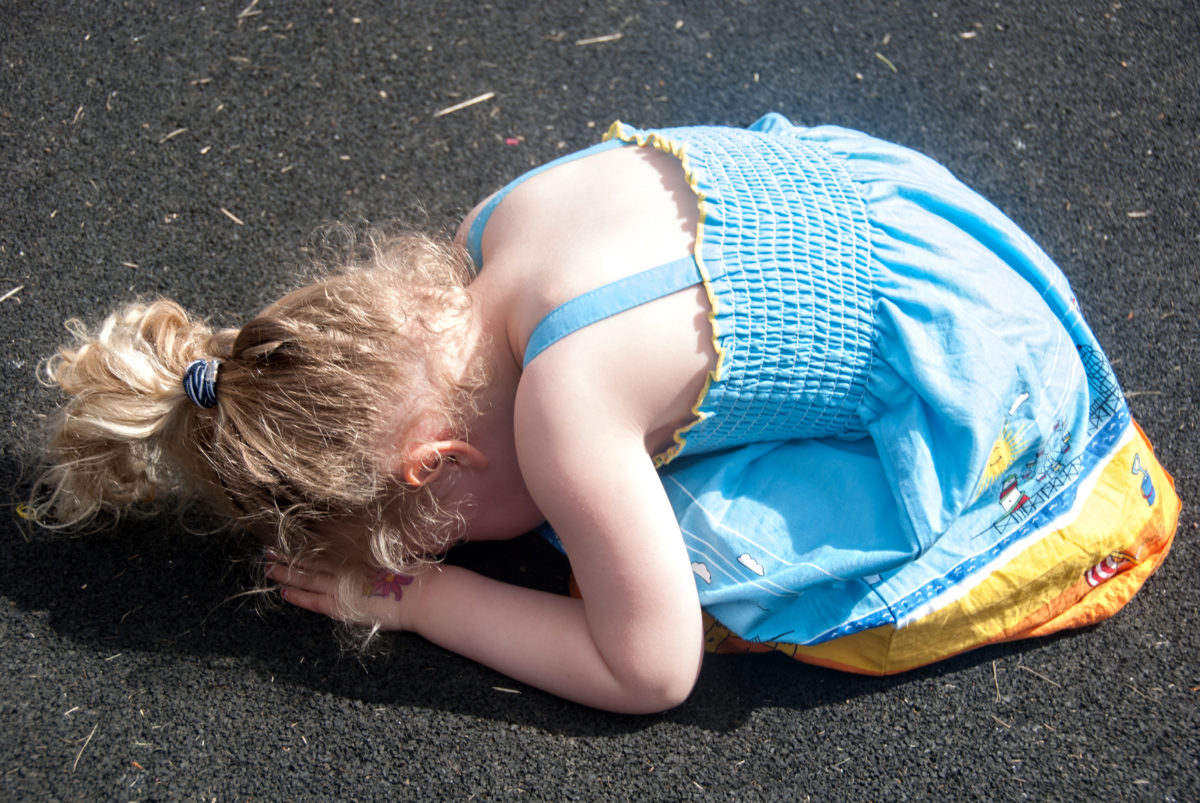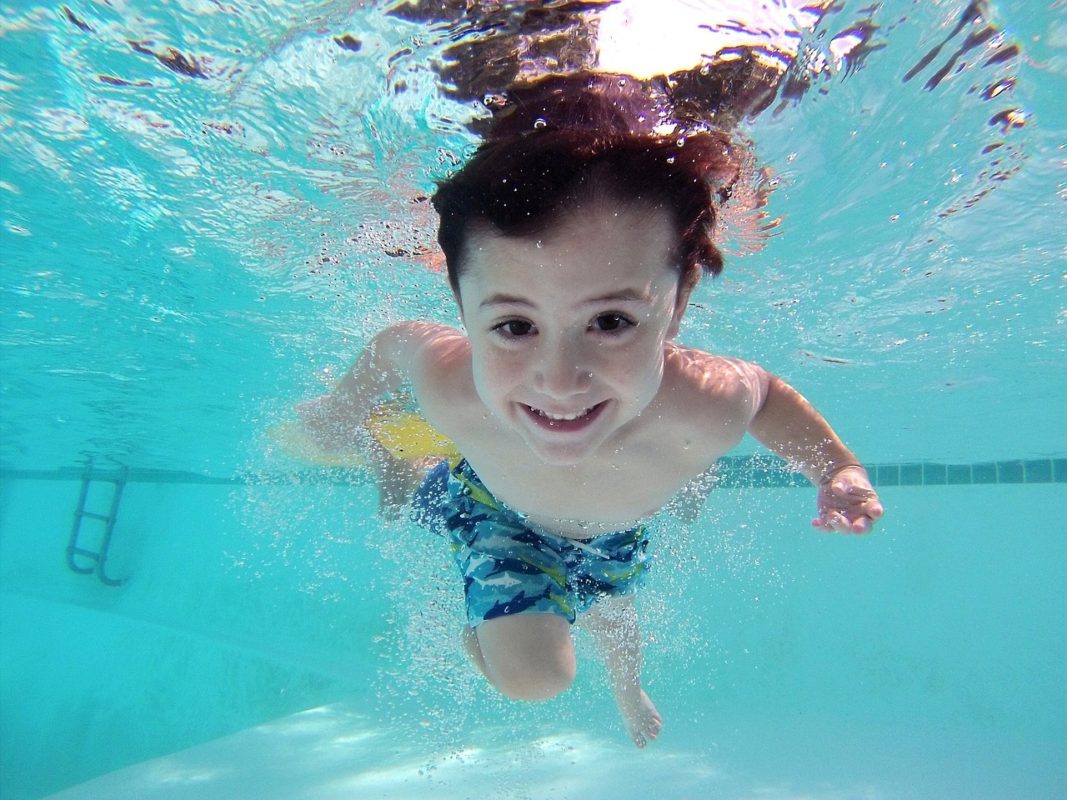The Best Life Lesson to Learn at the Park
Inside: Every child is doing the best they can with what they have, when we set judgment aside and instead focus instead on giving our own child healthy coping and communication skills we can teach acceptance of those with invisible disabilities or behavioral challenges.

You’re at the park in summer, on one of those great days where you have the chance to rest your tired legs on the park bench and feel the warm sun on your face. You exhale as you hear your child squealing with delight all the way down the slide.
Then it happens.
That kid arrives.
Immediately the child is bumping into your toddler on the stairs, climbing things that aren’t for climbing, and hastily skipping to the front of the line of kids waiting for the slide. “So much for that moment of peace,” you think as you approach your child to intervene.
“What is wrong with that kid!?” you find yourself wondering in frustration.
Humans like the idea of control.
When things don’t go the way we’d like them to, we find ourselves frustrated. When our kids’ social outings don’t unfold the way we’d like and situations out of our control ensue, it creates unease. We’ve all been there when challenging situations arise unexpectedly. After all, we are only human, and this parenting thing is exhausting.
Related <This is the Most Powerful Tool A Parent Has>
It’s true, that kid is frustrating to deal with. However, I’m seeing that kid in a whole new light these days. This happened somewhere within the plot twist of realizing that I am raising that kid.
It happened when my daughter outgrew her toddler years, yet many of the socially inappropriate and challenging behaviors continued.
It happened as we learned her nervous system wasn’t responding properly to the sensory input of her environment, and therefore she was constantly struggling to process sensory input (all information going in and out all day).

Anxiety, Sensory processing disorder (SPD), attention-deficit/hyperactivity disorder (ADHD), autism spectrum disorder (ASD), learning or developmental delays and any other “invisible” challenges that kid faces each day don’t get left at home during an outing to the park.
That kid still struggles with interpreting the body language and communication cues in the kids playing loudly around him.
That kid still struggles with waiting in line as impulsivity drives his body to the front of the line (before he even knows it), as sensory issues make the physical closeness feel like his skin is crawling.
That kid still struggles with listening to adults and her peers because her receptive language processing is delayed and when she becomes cognitively overwhelmed, she melts down, her little nervous system doing all it can to hold. it. together (read: fight or flight).
That kid is doing the best they can with what they have at the park.
Related <Everything You Need to Know About Sending Your Child to Therapy>
You know who else’s kid is doing the best with what they know, yours. Actually, all of them for that matter. Maybe it’d be easier to remain patient if we knew for certain that that kid had an invisible disability, but here’s the thing, we don’t know.
What if instead of assuming to be ‘all-knowing’ we just assumed the best in each and every child?
After all, maybe that kid (while developing typically) is struggling with welcoming a new sibling into their home and is feeling lonely and unseen. Perhaps that kid’s family is in the middle of a divorce or heart-shattering loss of a loved one, and their intense emotions are getting the best of them today.
It’s even possible that kid has a sensitive temperament, got yelled at this morning, and now intense feelings of shame and anger are rising to the surface after a long day of holding them in at school.
So what can parents do besides assuming the best?
It is possible for parents to model healthy coping skills, acceptance, and kindness all in one fell swoop when dealing with a child that is struggling.

1.Be mindful of your reaction and give it a moment to pass.
Is the behavior hurting or disrespecting our child, or just hitting a nerve of ours? Many times things that trigger us as adults aren’t bothering our children in the least but are instead coming from our own issues or pasts.
Children have an innate understanding that we are all different and will often be accommodating and tolerant in regards to different behaviors (unless they are taught otherwise). Give the parent of that kid a chance to step in and redirect them if warranted. The parents of that kid are often hyper-vigilant of their child’s behavior.
2.Nurture compassion.
Our perspective on the playground (and of the world) changes when we believe every child is doing the best they can with the skills they have, at any given moment. No child desires to be seen in a negative light by adults or peers. If a child needs correction and their caregiver is unaware, you have the opportunity to be a source of light for a child who lives in a world of constant disapproval, shaming looks, and criticism.
Instead of assuming the worst, assume the best. Interact with the child using respectful guidance speaking to them directly as if you believe they are capable and willing to learn. Speak to them the way you and your child would like to be spoken to. What an amazing opportunity to both teach and model problem-solving and communication skills for all children involved.
3.Model Acceptance.
If there’s a negative situation that can’t be aided, take some time to talk with your child about differences. Let them know while that child’s current behaviors may be inappropriate and not how you do things in your own family, that child may have a brain or body that works differently than ours and that’s ok. Let them know we all have challenges and hard days, and that this child is struggling today.
Finally, highlight things the children have in common and let them know that even though a child may be struggling or doing things in a different way, they still want to let loose and have fun at the park today, just like we all do.
Sign up here for research-backed parenting support based in child development and mental health to enhance your child’s well-being! Click the image below to join the PWC Community for bi-monthly emails and updates!








